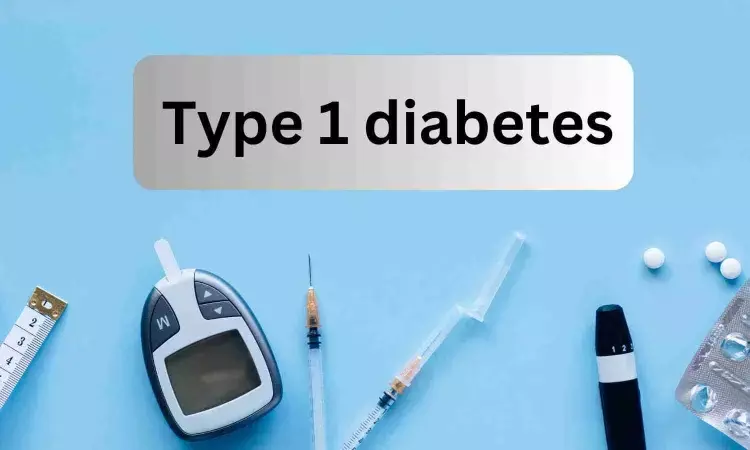- Home
- Medical news & Guidelines
- Anesthesiology
- Cardiology and CTVS
- Critical Care
- Dentistry
- Dermatology
- Diabetes and Endocrinology
- ENT
- Gastroenterology
- Medicine
- Nephrology
- Neurology
- Obstretics-Gynaecology
- Oncology
- Ophthalmology
- Orthopaedics
- Pediatrics-Neonatology
- Psychiatry
- Pulmonology
- Radiology
- Surgery
- Urology
- Laboratory Medicine
- Diet
- Nursing
- Paramedical
- Physiotherapy
- Health news
- Fact Check
- Bone Health Fact Check
- Brain Health Fact Check
- Cancer Related Fact Check
- Child Care Fact Check
- Dental and oral health fact check
- Diabetes and metabolic health fact check
- Diet and Nutrition Fact Check
- Eye and ENT Care Fact Check
- Fitness fact check
- Gut health fact check
- Heart health fact check
- Kidney health fact check
- Medical education fact check
- Men's health fact check
- Respiratory fact check
- Skin and hair care fact check
- Vaccine and Immunization fact check
- Women's health fact check
- AYUSH
- State News
- Andaman and Nicobar Islands
- Andhra Pradesh
- Arunachal Pradesh
- Assam
- Bihar
- Chandigarh
- Chattisgarh
- Dadra and Nagar Haveli
- Daman and Diu
- Delhi
- Goa
- Gujarat
- Haryana
- Himachal Pradesh
- Jammu & Kashmir
- Jharkhand
- Karnataka
- Kerala
- Ladakh
- Lakshadweep
- Madhya Pradesh
- Maharashtra
- Manipur
- Meghalaya
- Mizoram
- Nagaland
- Odisha
- Puducherry
- Punjab
- Rajasthan
- Sikkim
- Tamil Nadu
- Telangana
- Tripura
- Uttar Pradesh
- Uttrakhand
- West Bengal
- Medical Education
- Industry
SGLT2 inhibitors may Safely Reduce Progression of Kidney Disease in Adolescents with Type 1 Diabetes: ADA

Today, findings from the ATTEMPT study, showed that a low-dose of SGLT2 inhibitor could safely be given to youth and adolescents with type 1 diabetes to improve kidney function and glycemic management. ATTEMPT is the first of its kind, landmark trial designed to evaluate the effectiveness of SGLT2 inhibitors to optimize diabetes control and prevent early subclinical kidney complications in an at-risk pediatric population with type 1 diabetes. The results were presented as a Late-Breaking Symposium at the 84th Scientific Sessions of theAmerican Diabetes Association® (ADA) in Orlando, FL.
Type 1 diabetes impacts 352,000 children and adolescents younger than an age of 20 years. Diabetes is the number one cause of kidney disease, highlighting the need for renal precautions and interventions among individuals with diabetes. About 65% of children with type 1 diabetes may experience kidney complications which can lead to chronic kidney disease (CKD) as they age.
ATTEMPT (The Adolescent Type 1 Diabetes Treatment with SGLT2i for hyperglycEMia & hyperfiltration Trial) is a double-blinded, randomized, placebo-controlled trial that evaluated the impact of the SGLT2 inhibitor, Dapagliflozin, versus a placebo in combination with insulin therapy in adolescents with type 1 diabetes. Over a 16-week monitoring period, this trial assessed detailed renal mechanistic evaluations with direct measurement of glomerular filtration rate (GFR), glycemic control (HbA1c), and safety outcomes in 98 participants with type 1 diabetes. As a result, the ATTEMPT trial provides essential information in establishing a framework for young adolescents to evaluate key physiologic, mechanistic, and metabolic outcomes when using SGLT2i alongside insulin in type 1 diabetes.
The study demonstrated that a low dose of SGLT2 inhibitor could safely be given to youths and adolescents to improve kidney function as well as improve glycemic management. Treatment with low dose Dapagliflozin attenuated direct measures of GFR and was associated with a significant decline in HbA1c of 0.48% (P=0.001). No significant differences in the proportion of participants who experienced adverse events, elevated ketone levels, hypoglycemia and genitourinary tract infections in the Dapagliflozin vs Placebo groups were seen. A single case (N=1) of mild DKA was seen in the Dapagliflozin group. While rates of DKA were low, a greater number of elevated blood ketone events ≥0.6mmol/L were seen in the Dapagliflozin group (n=106) vs Placebo group (n=62) (P<0.001), emphasizing the patient centered DKA Risk Mitigation Education strategy operationalized during the study.
This study paves the way for us to evaluate treatments that can reduce kidney disease progression for those with type 1 diabetes,” said Farid Mahmud, MD, University of Toronto, lead investigator of study. “These findings also give us meaningful insights as we look how we optimize diabetes management in youth and young adults during a challenging period associated with kidney disease progression and above-target A1c.”
The authors note the trial was designed with protocols to successfully mitigate the risk for diabetic ketoacidosis, a risk that will need to be considered before these drugs can be widely used in clinical practice. They also state that the ATTEMPT Trial paves the way for researchers to produce longer studies that could help better understand additional benefits of adjunctive therapy in type 1 diabetes.
Dr Kamal Kant Kohli-MBBS, DTCD- a chest specialist with more than 30 years of practice and a flair for writing clinical articles, Dr Kamal Kant Kohli joined Medical Dialogues as a Chief Editor of Medical News. Besides writing articles, as an editor, he proofreads and verifies all the medical content published on Medical Dialogues including those coming from journals, studies,medical conferences,guidelines etc. Email: drkohli@medicaldialogues.in. Contact no. 011-43720751


